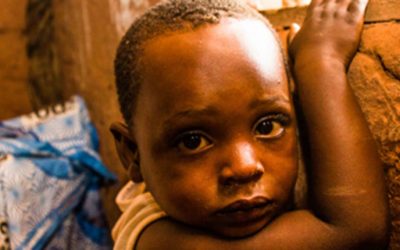ASSP
Access to primary health care project | Accès au Soins de Santé PrimaireABOUT ASSP
The Access to Primary Health Care program, known locally as ASSP, uses a health systems strengthening approach. ASSP collaborates with the Ministry of Health, or MOH, at the national and provincial levels, giving focused support to health zones, health facilities, and community levels. In addition, IMA and its partners ensure that more than 75% of the project resources are concentrated within the health zones. In other words, the majority of funds pay for programs that provide for service delivery, empowerment, accountability and capacity building of local community service organizations, partners and MOH representatives.
The project supports 9.7 million people across 52 health zones.
ASSP works in five provinces: Kasaï, Kasaï Central, Maniema, Nord-Ubangui, and Tshopo.
Where We Work
ASSP supports DRC’s National Health Development Plan. Specifically, we work to improve access to and coverage of primary health care services.
ASSP aims to strengthen priority interventions such as the treatment of malaria, pneumonia, and diarrhea. In addition, its programs work to strengthen nutrition, obstetrics and neonatal care, family planning, immunization, and water, sanitation, and hygiene interventions. Most importantly, all of its services are delivered through the existing health system. Therefore ensuring the sustainability of the programs implemented. These intervention packages are aimed at improving maternal and child health. Thus allowing the DRC to achieve significant progress towards reaching Millennium Development Goals 4, 5 and 6.
read more about our work to improve access to primary health care in the drc
DFID and the SIDA allocated £182,899,146 to support the Government of the Democratic Republic of Congo’s efforts to improve the health of its citizens. Accordingly, IMA World Health was selected as the lead organization to implement ASSP and in collaboration with the MOH. In addition, four implementing partners support the program at the provincial level: SANRU, World Vision, CARITAS and International Rescue Committee. Finally, four technical partners provide assistance at the national level: Tulane University (Operational Research), Pathfinder (Reproductive Health and Family Planning), HISP (Health Information Systems) and IntraHealth (Human Resource Information Systems).
DRC Malaria Team Witnesses Firsthand the Devastating Effects of the Disease
The IMA DRC Malaria Team is having great success with their hang up in West Kasai. So far the team...
Improving Health in DR Congo, Brick by Brick
The health center is a central feature of the health care system in DR Congo. While each health...
Community Core Groups: A Promising Platform for Integrated Development
The USAID-funded Project Ushindi has lived up to its name by helping thousands of women overcome...
QUICK CONTACTS
Recent Posts
DRC Malaria Team Witnesses Firsthand the Devastating Effects of the Disease
The IMA DRC Malaria Team is having great success with their hang up in West Kasai. So far the team has completed two zones, Kitangua and Banga, for a total of 89,600 bed nets donated by the Against Malaria Foundation. The team has now moved on to Kamonia Health Zone,...
Improving Health in DR Congo, Brick by Brick
The health center is a central feature of the health care system in DR Congo. While each health zone has a large referral hospital where more serious cases are referred, the smaller health centers, scattered among the villages, are where the day-to-day primary health...
Community Core Groups: A Promising Platform for Integrated Development
The USAID-funded Project Ushindi has lived up to its name by helping thousands of women overcome sexual and gender based violence in the eastern Democratic Republic of Congo. Ushindi means “to overcome” in Swahili and speaks to the goal of the project. Based in 10...





